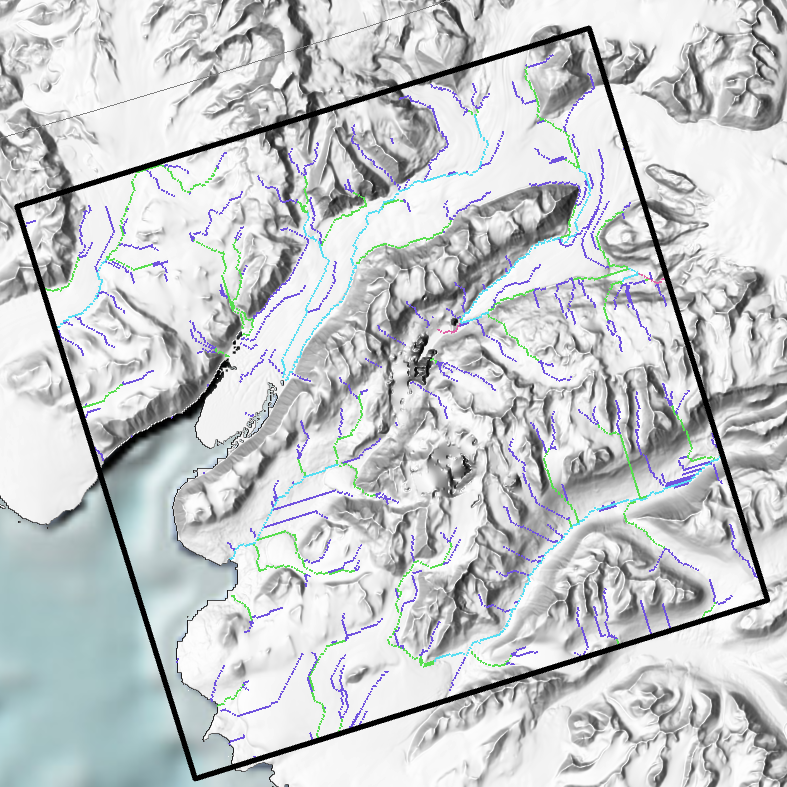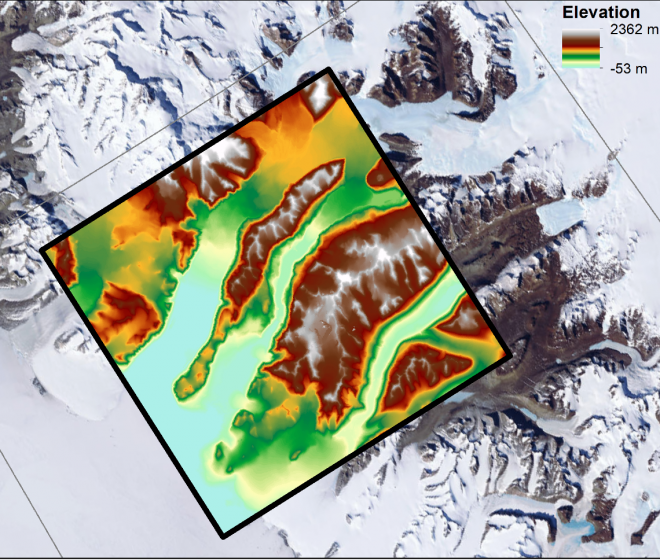Understanding the impacts of future warming in the Antarctic
The below case study shares some of the technical details and outcomes of the scientific and HPC-focused programming support provided to a research project through NeSI’s Consultancy Service.
This service supports projects across a range of domains, with an aim to lift researchers’ productivity, efficiency, and skills in research computing. If you are interested to learn more or apply for Consultancy support, visit our Consultancy Service page.
Research background
Dr Jono Conway, a Hydrological Forecasting Scientist with NIWA, is part of an Antarctic Science Platform and University of Otago project that is studying the regional hydro-climatology of the Ross Sea Region.
The work involves the Weather Research and Forecasting (WRF) Hydrological model, which can be coupled with the well-known WRF atmosphere code or run as a standalone model, as well as the COupled Snowpack and Ice surface energy and mass balance model in PYthon (COSIPY). The application of these models to the Ross Sea region and McMurdo Dry valleys will greatly enhance researchers' ability to project the impact of future warming on biological communities in these locations.
Project challenge
Multiple codes needed to be installed on NeSI's High Performance Computing (HPC) platform and configured for a test case to verify the setup.
What was done
Built “WRF Hydro”, which is a hydrological model, as a standalone code, as well as coupled with the well-known “WRF” atmospheric model
The codes were built on both the Māui and Mahuika HPCs, to enable the researchers to explore the advantages and disadvantages of running on either machine
Created an Anaconda Python environment that enables the researchers to run the “COSIPY” snowpack, ice surface energy, and mass balance model
Successfully ran standard test cases for the standalone and coupled versions of WRF Hydro and COSIPY
Main outcomes
Researchers are now able to access and use essential tools to conduct their research projects
The project supported valuable skill transfer around setting up, building, and running these research codes on the HPC
The models are being used by several students at the University of Otago, so having the software built and configured on NeSI machines will accelerate the students’ progress towards their scientific objectives without the burden of installing complex models.

Researcher feedback
"The NeSI team made it very easy for us to get started with these new models on the HPCF. They smoothed over many installation quirks and even simplified the process for us to run the models. It definitely feels like we had a head start on the project and could jump straight into our science."
- Jono Conway, Hydrological Forecasting Scientist, NIWA
Do you have a research project that could benefit from working with NeSI research software engineers or a data engineer? Learn more about what kind of support they can offer and get in touch by emailing support@nesi.org.nz.







